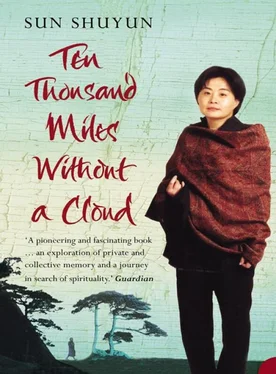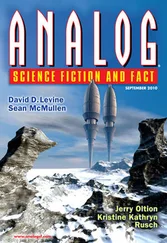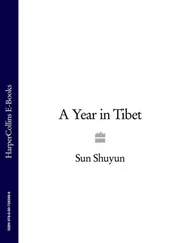Every day I ran back as soon as school was over to check them. Grandmother said they liked mulberry leaves best but our city had so few mulberry trees, we had to make do with cabbage leaves. My sisters and I had a competition among us to see who had the fattest and whitest silkworms. But the most fascinating part was when they secreted a shiny thread, which seemed just to go on and on. We asked Grandmother what the thread was for. She said it was silk, and it made the most wonderful material. We did not believe her. Then she opened the wardrobe and pulled out a bright red quilted jacket which I had never seen anyone wearing. ‘This was what your mother wore when she got married,’ she said happily. ‘This is made of silk. You feel it.’ It was so smooth and shiny, like my hair. It was hard to imagine such beautiful cloth could have come from those insects in my shoe box.
Looking back, it is equally hard to imagine that the thread from the silkworms could have been the source of so much wealth and beauty, and changed history. Today the Silk Road has declined, but something else, something more enduring, still touches our lives. For over a millennium, religions, technology, philosophy, culture and art were transmitted along its branches. It was through this highway that four of China’s greatest contributions spread westward – paper-making, printing, gunpowder and the compass – and it was along the same road, in the other direction, that Buddhism came to China. The seeds of ideas travelled across the barriers of mountains, deserts and languages. Some took root; others died; some flourished and spread extensively. What each traveller carried was small, but wave succeeded wave; and in the process, all the peoples along the Silk Road enjoyed the fruits of the diffusion.
The Silk Road was possible because there were strings of oases to supply the caravans. One of the biggest oases in the region west of the Yellow River was Liangzhou, the capital of several short-lived dynasties set up by nomads as well as the Chinese. It was very popular with the merchants, who had long used it as their base from which to make forays into the rest of China. Mostly they prospered. But things could go wrong. In the early fourth century AD, a merchant based in Liangzhou sent a letter home to Samarkand, reporting that many of his fellow-merchants had died of starvation because of a peasant revolt and war in China, and claiming that he himself was on the verge of death too. ‘Sirs, if I were to write to you everything about how China has fared, it would be beyond grief.’ He asked his business partners to look after a large sum of money he had left with them, to invest it on behalf of his motherless son, and to give his son a wife when he grew up.
But for all the dangers the lure of the Silk Road and its high profits was irresistible. When Xuanzang arrived in Liangzhou from Chang’an in 627, after travelling over seven hundred miles in one month, he found a bustling city of over 200,000 people, many of them foreign merchants who took up five of the seven wards within the walled city. He was pleased to see monks from as far as India, Central Asia and the Western Regions, in monasteries, temples and caves in and outside Liangzhou. He decided to spend some time there and find out from them, and from the merchants, about their countries and the border crossing.
The local people were delighted to have a master from the capital, and they pleaded with Xuanzang to preach the Dharma. Although he was worried about being exposed as an unauthorized traveller, he could not refuse. Impressed with his clear and eloquent preaching, they showered him with gold, silver and horses to show their appreciation. He kept one horse and some money for his journey ahead and gave the rest to the monastery where he was staying. But as he had feared, his popularity brought him unwanted attention. Warned of his intention of going to India, the Governor of Liangzhou sent for him and ordered him to return to the capital. ‘The emperor has just come to the throne and the borders are yet to be secured. No one is allowed to go beyond here,’ the governor reiterated the imperial edict. That night, Xuanzang slipped out of Liangzhou, secretly guided by two disciples of a senior monk who had listened to his preaching and sympathized with his ambition.
My train arrived in Liangzhou, or Wuwei as it is called today, the next afternoon, fifteen hours after leaving Xian. The loudspeakers in the compartment were blaring out a potted history of this ancient, glorious city, and its emblem, the bronze Flying Horse, which is about the only thing that ordinary Chinese know about Wuwei. A few peddlers were trying to shove a replica through the train windows. It originates in one of our most famous archaeological discoveries, a pit with eighty of the magnificent steeds: they are shown taking prancing steps on powerful long legs, with defiant expressions and flared nostrils. In real life they were renowned for their stamina and agility, far superior to China’s short, stocky steppe ponies. They were the ideal mount for Chinese cavalry defending against the nomadic tribes, who could not be stopped by the Great Wall. They were so important, they were worthy of a lengthy comment from Si Maqian, the most famous Chinese historian, in his Record of History.
The Son of Heaven greatly loved the horses of Kokand [today’s Ferghana valley, shared by Kyrgyzstan, Uzbekistan and Turkmenistan], and embassies set out one after the other on the road to that country. The largest of them comprised several hundred men; the smallest fewer than a hundred … When they were refused, the Son of Heaven sent a great quantity of silver and a horse made of solid gold in exchange for the horses. The king accepted the presents but refused to part with his horses – he reckoned that he was out of reach of the Chinese army. The ambassador was murdered. So the emperor sent 60,000 men … and a commissariat well stocked with supplies besides cross-bows and other arms … Only half the army survived the journey and laid siege to Kokand in 102 BC. After 40 days, they succeeded, and were offered 30 superior or heavenly horses and 3,000 of lower quality. Less than half these survived the return journey but sufficient to provide for judicious breeding under the imperial eye.
I decided not to stop in Wuwei. It is no longer the cosmopolitan city of old, whose music was enjoyed by emperors and commoners alike, whose wine was relished by the rich and powerful in Chang’an, whose inhabitants drank from silver ewers decorated with figures from Greek mythology, and whose remoteness and exotic blend of peoples and cultures fired the imagination of any number of poets. Like many cities in western China, it has languished into a long slumber, and all its ancient past has been erased. The station was just a low building and a dusty platform with a semi-abandoned air. When the train moved off, it sounded a soft peep, instead of the usual strident whistle, as if not to wake anyone in the sleepy town.
I got off at Liuyuan, the Willow Station, in the early morning. It was in the middle of the desert without a tree in sight. I could not understand why the station was here nor how it came by its name. Perhaps it was wishful thinking, taking its inspiration from a Chinese saying: ‘Drop one sprig of willow on the ground and a whole forest will come up.’
At least my taxi-driver was happy after sleeping at the station overnight in the hope of a fare. I told him I wanted to go to the Jade Gate, and I was about to explain to him where it was. He cut me off: ‘No problem. It’s so famous. All the tourists want to go there.’ Off we went, into the desert that seemed one endless dusty grey world. Surrounded by a void, it was hard to imagine that we were on what was once a thriving commercial thoroughfare. At least it was a good road.
Читать дальше












